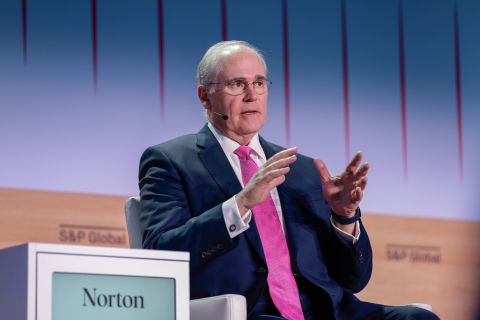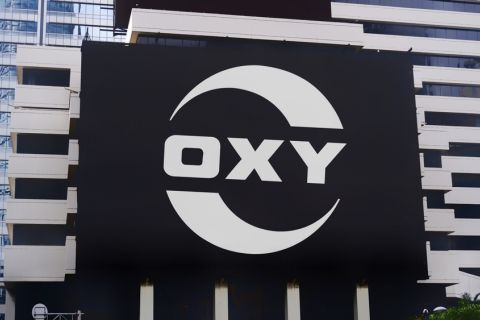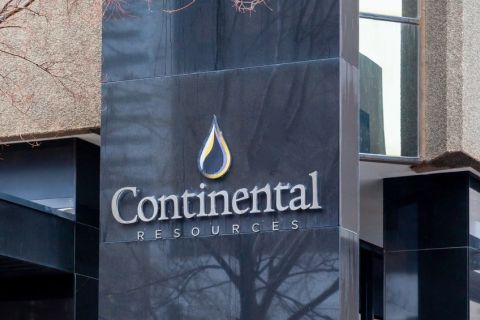There has been much recent talk about the costs behind implementing the kinds of corporate governance practices recommended by the Sarbanes-Oxley Act and many of the stock exchanges. But there is also a growing body of evidence that good corporate governance measures are linked to stock performance and shareholder value. A panel of speakers at the recent Deloitte oil and gas conference in Houston tackled this topic. Some academic studies have examined the issue. And one financial association held a workshop in late November that looked at corporate governance as an investment strategy and analyst tool. "While good governance may not be enough to fix a lousy business, it's clear that bad governance can easily ruin a good business," Howard Sherman, chief operating officer of GovernanceMetrics International (GMI), said at the Deloitte conference. The evidence has become pretty dramatic that, over time, "governance does matter," he added. GMI is a New York-based firm that issues corporate governance ratings for more than 1,600 global companies. In September, it compared the performance of its top 10%-rated companies with its bottom 10%-rated companies. GMI looked at the companies' total returns to shareholders (return on investment, including income from dividends and interest, as well as appreciation or depreciation in the price of the security) for the past one, three, five and, sometimes, 10 years. The 10-year average annual return for the top 10% of GMI-rated companies was 11.4%, while the bottom 10% racked up a loss of 2.5%. The average return for all companies in the survey was 8.9%. "The connection between strong corporate governance and higher average annual total returns persists in a number of areas, demonstrating that investors will consistently pay a premium for companies with strong governance relative to their peers," reports GMI. Sherman said the benefits of good governance practice are many: lower borrowing costs, reduced or more moderate increases in director and officer insurance, lower litigation costs, a lower chance of being targeted for shareholder action and negative proxy votes, a higher chance of recruiting and retaining good directors, higher employee morale and a higher stock price. The New York Society of Security Analysts (NYSSA) sponsored a workshop on corporate governance in November. The NYSSA agenda was packed with such corporate governance advocates as New York Attorney General Eliot Spitzer, and such influential institutional investors as the California Public Employees' Retirement System (Calpers). Calpers, with more than 1.4 million members, has long scrutinized companies' corporate governance principals. Annually, it identifies those companies that are among the poorest long-term performers in its domestic stock portfolio, and makes recommendations for improvements-from appointing more independent directors to separating chairman and chief executive officer functions to developing formal executive compensation policies. The result is what's known as the "Calpers Effect." Investment advisory firm Wilshire Associates of Santa Monica, California, has examined the performance of 95 companies targeted by Calpers between 1987 and 1999. While the stocks of these companies trailed the Standard & Poor's 500 Index by 96% in the five-year period before Calpers acted, the same stocks outperformed the index by 14% in the following five years. In the February 2003 edition of The Quarterly Journal of Economics, Paul Gompers of Harvard Business School and two of his colleagues published a paper suggesting a relationship between corporate governance and share prices. "We find that firms with stronger shareholder rights had higher firm value, higher profits, higher sales growth, lower capital expenditures, and made fewer corporate acquisitions," the authors wrote. The authors used 24 distinct corporate-governance provisions for a sample of about 1,500 firms per year during the 1990s, and built a "Governance Index." They then analyzed the relationship of this index to corporate performance. The authors were reluctant to say whether good corporate governance measures directly caused stock prices to rise, but they did find a strong correlation between governance and returns. If investors had purchased shares in those index companies with strong governance measures and sold shares in the companies with the weakest governance measures, they would have earned abnormal returns of 8.5% a year, the authors found. Companies are getting the message that corporate governance is important. In late July, Halliburton named Mark McCollum to the newly created position of chief accounting officer, to ensure the quality of the company's financial reporting and controls. "I believe my calling by [chairman, president and chief executive officer David] Lesar and the board is directly related to the issues we're talking about today," McCollum said at the Deloitte conference. Before 2001, Halliburton was trying to get its arms around internal controls, he said. In 2002, in response to the Sarbanes-Oxley Act, the company set up certification committees to "put more documentation and process around what was already happening." In 2003, the company created a disclosure committee that sits on top of the entire company and is staffed with titles of vice presidents and above. -Jodi Wetuski
Recommended Reading
ONEOK CEO: ‘Huge Competitive Advantage’ to Upping Permian NGL Capacity
2024-03-27 - ONEOK is getting deeper into refined products and adding new crude pipelines through an $18.8 billion acquisition of Magellan Midstream. But the Tulsa company aims to capitalize on NGL output growth with expansion projects in the Permian and Rockies.
Report: Occidental Eyes Sale of Western Midstream to Reduce Debt
2024-02-20 - Occidental is reportedly considering a sale of pipeline operator Western Midstream Partners as the E&P works to close a $12 billion deal in the Permian Basin.
Making Bank: Top 10 Oil and Gas Dealmakers in North America
2024-02-29 - MergerLinks ranks the key dealmakers behind the U.S. biggest M&A transactions of 2023.
Enterprise Buys Assets from Occidental’s Western Midstream
2024-02-22 - Enterprise bought Western’s 20% interest in Whitethorn and Western’s 25% interest in two NGL fractionators located in Mont Belvieu, Texas.
Continental Resources Makes $1B in M&A Moves—But Where?
2024-02-26 - Continental Resources added acreage in Oklahoma’s Anadarko Basin, but precisely where else it bought and sold is a little more complicated.





